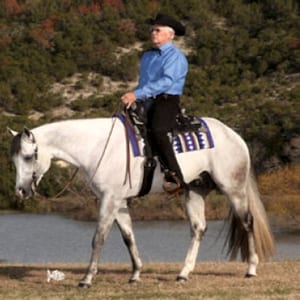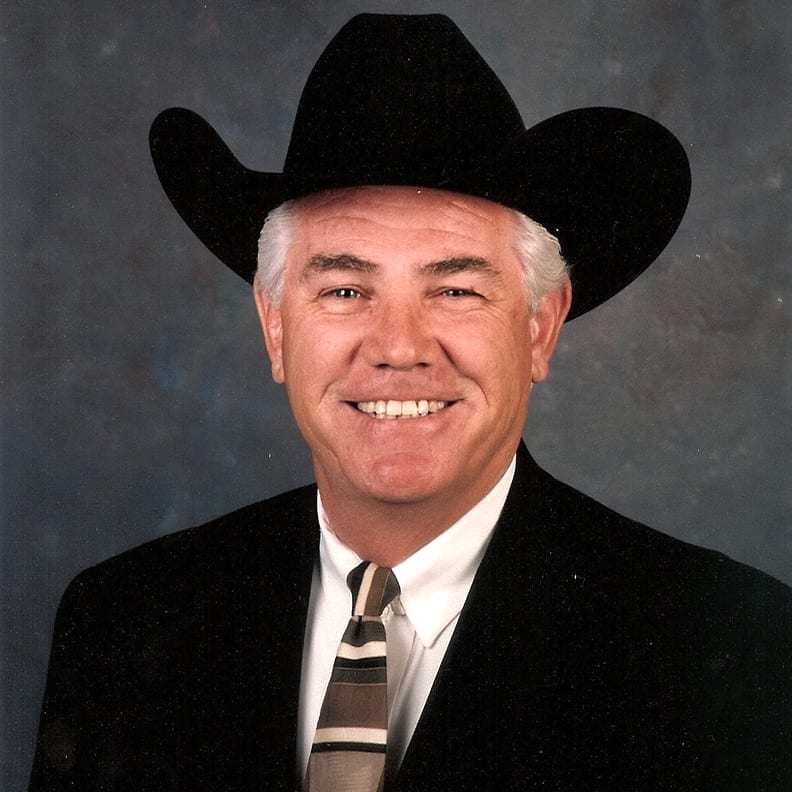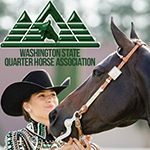Legendary trainer Dale Livingston of San Antonio, Texas says he didn’t have a choice when it came to horses. At an early age, he knew it was his calling, and as a young boy, the multiple Congress and World Champion western pleasure trainer would save his lunch money the entire school week to go riding at a local barn in Lincoln, Nebraska.
“I loved the smell of horses and I just had to be around them,” says Livingston, who grew up a “air force brat” and around a non-horse family. “It was a burning passion and I had to do it.”
Livingston’s biggest advice for someone who wants to be a trainer in this industry is simple, “if you don’t love it, just don’t do it.”
“I rarely have become frustrated with all the long hours and time I have put in this industry,” says Livingston, who has won five AQHA World Championships and trained 13. “I didn’t care to dwell on the setbacks and obstacles placed before me because I was doing what I loved. I filtered out all the bad stuff because I knew I was in it for the long haul and there isn’t anything else I’d rather be doing.”
Livingston, who has trained several famous horses in our industry including: Barpassers Image, Ima Big Leaguer, Dirty Larry, Bares Raisin Cane (Invitation Only’s dam), and Kay Cee Leaguer says that young trainers need to do some serious soul searching before they decide to venture into this profession.
“There aren’t enough highs or blue ribbons to get into the business just because you want to win something,” Livingston remarks. “Don’t just do it for the glitz. If that’s what you want to do, get a honest job and buy a show horse for a hobby.”
Dale continues, “I would also recommend trainers to have a good education and background in communication and business–probably a four year degree. When I first started, I didn’t communicate that well with my clients, and I wasn’t able to get across what I needed to them. Trainers need social skills to be able to express to their clients how their horse is doing, future goals for their horses, and trainers must also understand the expectations of their clients.”
 Livingston adds, “Some owners in the horse industry may not be as educated about horses, but they are intelligent people and must have some sort of smarts because they have the disposable income to spend on horses. Horses are expensive and trainers need to take the time to educate themselves so they are better equipped with dealing with the worldly clients that are involved in the industry.”
Livingston adds, “Some owners in the horse industry may not be as educated about horses, but they are intelligent people and must have some sort of smarts because they have the disposable income to spend on horses. Horses are expensive and trainers need to take the time to educate themselves so they are better equipped with dealing with the worldly clients that are involved in the industry.”
Self described as a rebel and “wild child” when he first started out in the industry, the now 61 year-old says that he is the poster child for injured trainers. With four hip replacements and three knee surgeries, Livingston says that trainers must have affordable health insurance because there is a likelihood that trainers will get hurt at some point in their careers.
Livingston also credits marrying well and having a great partner in his wife, Melinda Livingston, to help offset expenses and costs when he became injured. His wife currently is Director of Operations at Double Diamond Equestrian Center located in Boerne, Texas. Dale also currently trains out of this facility and is promoting and showing the stallion, Im A Platinum Dream, a 2010 gray stallion by Huntin For Chocolate and out of multiple AQHA Superior and World Champion producer, Ima Bodacious Dream.
“I also judged a lot of shows when I was injured so that I could pay the bills,” Livingston recalls. “For me, I have always seen judging as a way to give back to the industry and not necessarily as a way to make a living, but the extra income did help me out when I was hurt. So, I believe having a judge’s card is also a good way for some trainers in our industry to have a fall back when they are temporarily or permanently unable to train horses.”
Livingston also says that he thinks it is the age talking when trainers start worrying about their future and the fact they don’t have a pension or anything to fall back on. However, he does say that he wished he had looked into different avenues to make money–like Bob Avila who has his own tack and bit line. Dale says he never really ventured into that part of the industry and looking back–that could have been helpful later down the road when he can no longer ride or show.
“I have been blessed to do what I have wanted to do all my life, and now I’m not going to say, ‘Woes me now.’ This industry has been way too good to me,” says Livingston. “I am blessed, appreciative, and grateful of all the successes I have had in the industry. I’m not going to stress about my future and I’ll cross that bridge when I get there. I’m not going to live out my life any less than I have lived my life.”
Photo © Don Trout









